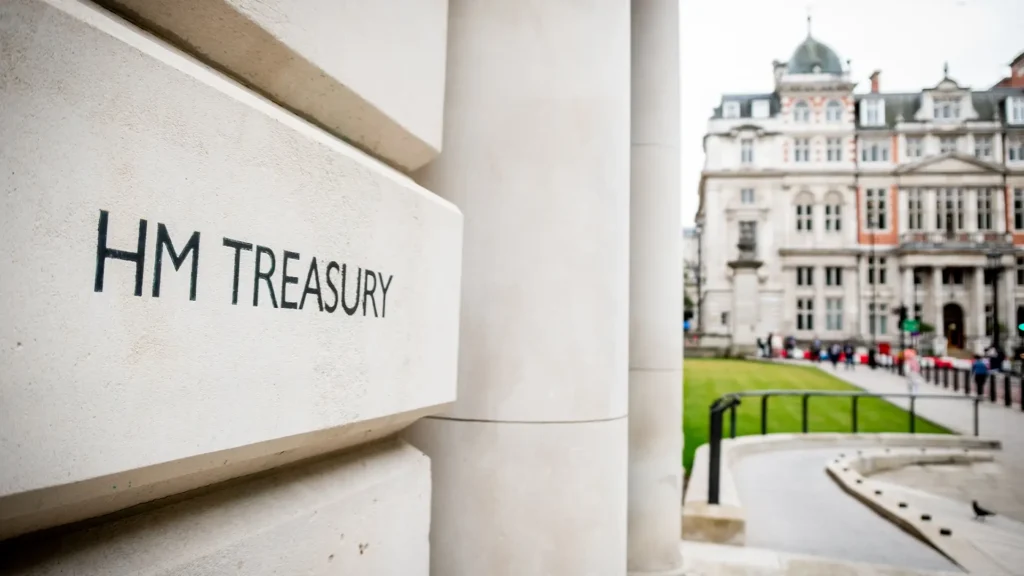-
The UK Treasury has introduced a consultation paper targeting enhancements in anti-money laundering (AML) regulations in crypto.
-
The proposed changes also reflect the UK government’s commitment to adapt its regulatory framework.
-
This expansion aims to safeguard the financial system from the risks associated with money laundering and terrorist financing.
In a decisive move to fortify its financial regulatory framework, the UK Treasury has introduced a consultation paper targeting enhancements in anti-money laundering (AML) regulations, particularly focusing on the burgeoning sector of crypto assets.
This initiative, stemming from a comprehensive review of the Money Laundering, Terrorist Financing, and Transfer of Funds (Information on the Payer) Regulations 2017 (MLRs), seeks to implement “smarter regulation” principles.
These principles aim to alleviate regulatory burdens, prioritize regulation as a last resort, and foster a responsive and accountable regulatory environment.
Enhancing AML Measures in the Crypto Space
The consultation underscores the importance of adapting the regulatory standards to address the unique challenges presented by crypto assets. By proposing changes that align with the Financial Services and Markets Act 2000 (FSMA) and the MLRs, the Treasury aims to create a more robust supervisory regime that can effectively combat money laundering within the crypto market.
Streamlining crypto asset supervision
The proposed amendments represent a strategic shift in crypto asset service provider supervision. Currently, institutions that fall under the FSMA’s purview are not mandated to obtain MLR registration, creating a regulatory gap for most crypto firms.
The consultation suggests that MLR-regulated institutions should also come under the Financial Conduct Authority (FCA) regulation, eliminating the need for separate MLR authorization. This consolidation is expected to simplify the regulatory landscape for crypto assets, enhance compliance efficiency, and strengthen the UK’s stance against financial crimes.
Also, Read UK Intellectual Property Office clarifies on legal framework governing NFT registration.
Furthermore, the extension of FSMA’s reach to include activities such as operating a crypto asset exchange and providing custody services indicates a proactive approach to encompassing all facets of the crypto ecosystem under regulatory oversight.
Crypto assets not previously subject to FCA scrutiny will now require registration for MLR supervision, ensuring a comprehensive regulatory framework that addresses potential money laundering risks.
Addressing intellectual property and regulatory divergence
One of the consultation’s focal points is the alignment of MLR requirements with those established by the FSMA, particularly concerning control standards and thresholds. This alignment aims to address the discrepancies between the assessments made under both regulatory regimes, facilitating a more unified approach to financial oversight.

The Treasury’s endeavour to revamp the money laundering regulations reflects a broader strategy to adapt the UK’s financial regulatory standards to the evolving landscape of digital currencies and crypto assets.
The proposed changes aim to strengthen the integrity of the UK’s financial markets by promoting clarity, proportionality, and effective coordination within the AML/CTF regime. Additionally, the consultation opens avenues for stakeholder collaboration, ensuring that the regulatory framework remains agile and responsive to the dynamic nature of crypto assets.
Also, Read The UK searches for head of CBDC, edges closer to a digital Pound Sterling.
The Treasury’s consultation paper is not just a regulatory update; it’s a strategic move towards ensuring the crypto asset sector’s integrity and stability. By expanding the Financial Conduct Authority’s (FCA) oversight to include a broader range of crypto asset activities, the UK is setting a precedent for comprehensive crypto regulation.
This expansion aims to safeguard the financial system from the risks associated with money laundering and terrorist financing, which are inherently higher in the rapidly growing and evolving crypto market.
Moreover, the consultation’s emphasis on harmonizing the regulatory standards between the MLRs and the FSMA is a significant step towards eliminating confusion and creating a seamless regulatory environment for crypto asset service providers.
This harmonization is expected to streamline the compliance process, making it easier for crypto firms to adhere to the UK’s legal requirements while fostering innovation and growth within the sector.
The proposed changes also reflect the UK government’s commitment to adapt its regulatory framework to the challenges and opportunities presented by new technologies. By considering the unique aspects of blockchain technology and the decentralized model it enables, the Treasury is acknowledging the need for a forward-thinking approach to regulation.
This includes addressing intellectual property issues that may arise in the crypto space, and ensuring that the UK’s legal framework remains relevant and effective in the digital age.
In essence, the Treasury’s proactive stance on crypto asset regulation and its efforts to enhance anti-money laundering measures signify a broader vision for a secure, innovative, and well-regulated financial market that can lead the way in the global digital economy.
In conclusion, the UK Treasury’s consultation paper marks a pivotal step towards integrating crypto assets into the UK’s regulatory framework, aiming to mitigate money laundering risks while supporting innovation in the financial services sector.
As the consultation process unfolds, it will be crucial for stakeholders to engage in the dialogue, contributing to the development of regulatory standards that balance security with the growth potential of crypto assets.
This proactive stance by the UK government not only strengthens the Financial Services and Markets Act but also positions the UK as a leader in the governance of digital currencies and the broader crypto market.
